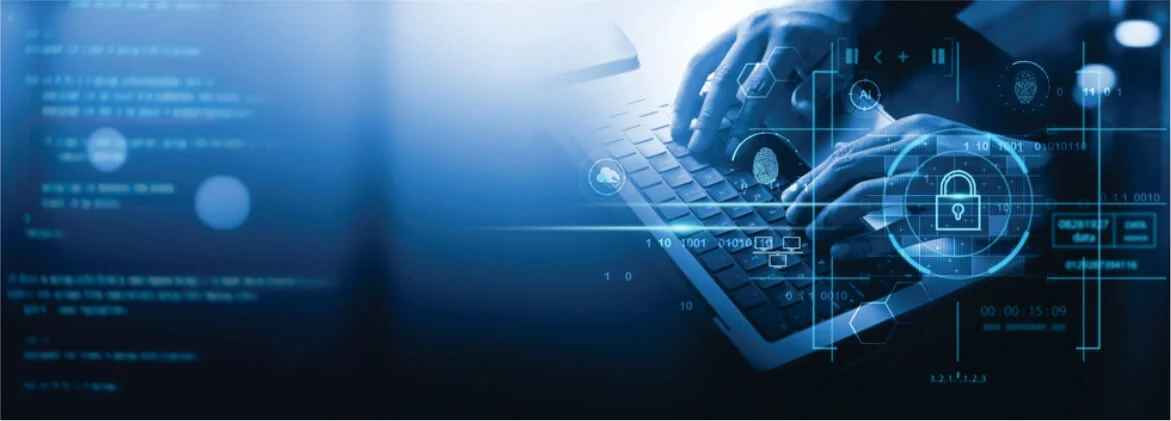Course Includes:
- Course Level: Expert
- Duration: 30 to 40 Hours
- Lessons: 11
- Course Delivery: Online & Offline
- Enrolled: 56k + students
- Language: Hindi and English
- Certificate: Yes
- Contact Us: +91-8595756252



The Malware Analysis course hopes to give students full details and practical skills they must inspect and understand lots of malware. Students in it dive into everything about harmful software, investigating its behavior, structure, and effects on computers. Students who develop the knowledge must recognize, assess, and successfully mitigate malware risks through a combination of academic lectures, simulations, and real-life instances.
Malware is a broad term that covers a variety of dangerous programs, like worms, ransomware, adware, and more. Each type exhibits distinct characteristics and behaviors, necessitating different analysis approaches. By understanding the nature and purpose of malware, we can better prepare to counter its threats.
In this course, students will learn about how to analyze software for finding Hidden Malware. Like: Analysis of Trojan Horse, Rootkit, Network Connection, etc.
We start some basic lessons in our first phase of the Malware Analysis Course for a better understanding of this course.
Now we continue some Advanced attacking lessons in our Second phase of the Malware Analysis Course.
5.00 average rating based on 400+ rating
Malware analysis is the process of breaking down and examining malicious software to comprehend its function, potential effects, and behavior. It involves examining malware samples to uncover their functionality, reverse-engineering code, and identifying indicators of compromise.
A malware analysis course is beneficial for individuals interested in cybersecurity, such as security analysts, incident responders, network administrators, and malware researchers. It is also suitable for aspiring ethical hackers or anyone seeking to enhance their knowledge of malware detection and analysis techniques.
You can learn many ways of analyzing and dissecting malware in a malware analysis course, such as static and dynamic analysis techniques, code hacking, behavior analysis, and malware sandboxing. You will also gain insights into malware families, exploit kits, and anti-analysis techniques.
The basics for each course vary, but usually, a firm grasp of computer networking, operating systems, programming languages (such as C/C++ and Python), and fundamental cybersecurity concepts is advised. Familiarity with assembly language and debugging tools can be beneficial as well.
Yes, malware analysis courses often introduce students to a range of tools commonly used in the field, such as IDA Pro, OllyDbg, Ghidra, Wireshark, YARA, and various sandboxing environments. These tools help automate analysis tasks, assist in code inspection, and provide insights into malware behavior.




Penetration testing tool introduction: ChatGPT Cyberattacks are more frequent and effective than ever as the world progresses toward digital.…
In this article, we will know how to install the Android operating system in VirtualBox on Kali Linux.…
Sometimes we forget the passwords of our essential daily life things like social…








Monu Sinha
1 Week agoThe Malware Analysis course exceeded my expectations in every way. The comprehensive curriculum provided an in-depth understanding of malware analysis techniques and tools. The course had a good framework, and the instructor's knowledge was clear at all times. The hands-on labs and real-life case studies enhanced my practical skills and prepared me for real-world scenarios. I highly recommend this course to anyone seeking to become proficient in malware analysis.
Harshita nimbachiya
3 Weeks agoI am incredibly impressed with the Malware Analysis course. The content was meticulously organized, covering various types of malware and their analysis methodologies. Even novices could understand the instructors' clear and concise explanations of difficult ideas. The practical exercises and interactive sessions helped reinforce my learning. Anyone who wants to deal with the malware threat's constant evolution must take this course.
Jhon Mathew
1 Month agoThe Malware Analysis course is a game-changer. The instructors' expertise and passion for the subject shone through every lesson. The course material was current and in line with current business trends. I valued the practical approach since it allowed me to put the skills I had acquired to use. The supportive online community and the course resources provided added value to the overall learning experience. I am confident that the skills I acquired will greatly benefit my career in cybersecurity.
Hellen Mary (U.K)
3 Months agoI have experience in cybersecurity, therefore I can state with assurance that the Malware Analysis course is excellent. The instructors' deep knowledge and practical insights helped me delve into the intricacies of malware analysis. The course strikes an excellent balance between theory and hands-on practice. Comprehensive knowledge of malware behavior and appropriate defenses was supplied by step-by-step instructions and real-world examples. I am appreciative of the knowledge I acquired from it and recommend it to whoever cares about effectively preventing viruses.
Punit Kumar
5 Months agoThe Malware Analysis course exceeded my expectations in every aspect. The professors' zeal for it was contagious, they had a useful knack for breaking down challenges into understandable terms. The simulations were intriguing. difficult, and the course material was current. The supportive community fostered collaborative learning and allowed me to connect with like-minded professionals. Overall, I would highly suggest this course as a fantastic investment in your professional development.